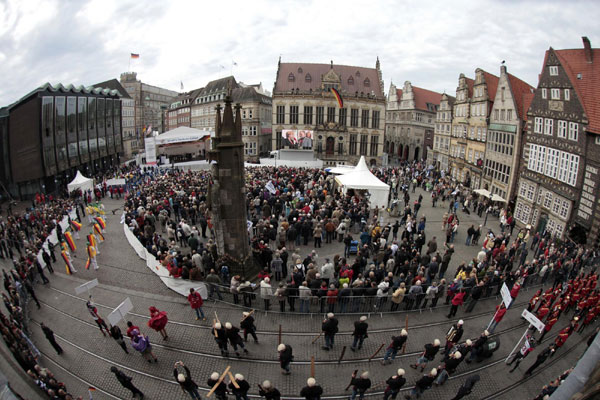Global General
Germany celebrates 20 years of reunification
(Xinhua)
Updated: 2010-10-04 08:50
 |
Large Medium Small |
In a recent poll for the ZDF public television, 14 percent even believed that unity had been a mistake, although 84 percent thought it was right. Since 1990, an estimated 1.3 trillion euros (1.83 trillion dollars) has been poured into the transformation of the eastern society. However, Germany, Europe's largest economy, is still struggling to bridge gaps between the East and the West.
Unemployment rates in the five former eastern states ranged between 11 percent and 13 percent, much higher than the average figure of the country, which slumped to 7.2 percent in September after 15 consecutive months of decline.
Statistics showed that the East were also lagged far behind on both the productivity and consuming ability, other two key indicators measuring the economic vitality of a society.
"There are still structural differences between new (post-1990) and old (West German) federal states, as becomes clear when you look at monthly employment figures," Merkel said in an earlier exclusive interview with the German Press Agency (DPA).
"In the past 20 years, we have managed a lot -- from expanding transport routes through to environmental protection, better medical cover and general quality of life," she added. "I am confident that we will manage the rest of the journey."
|
 A general view of spectators watching celebrations marking the country's 20th anniversary of reunification, in the town square in Bremen October 3, 2010. [Photo/Agencies] |